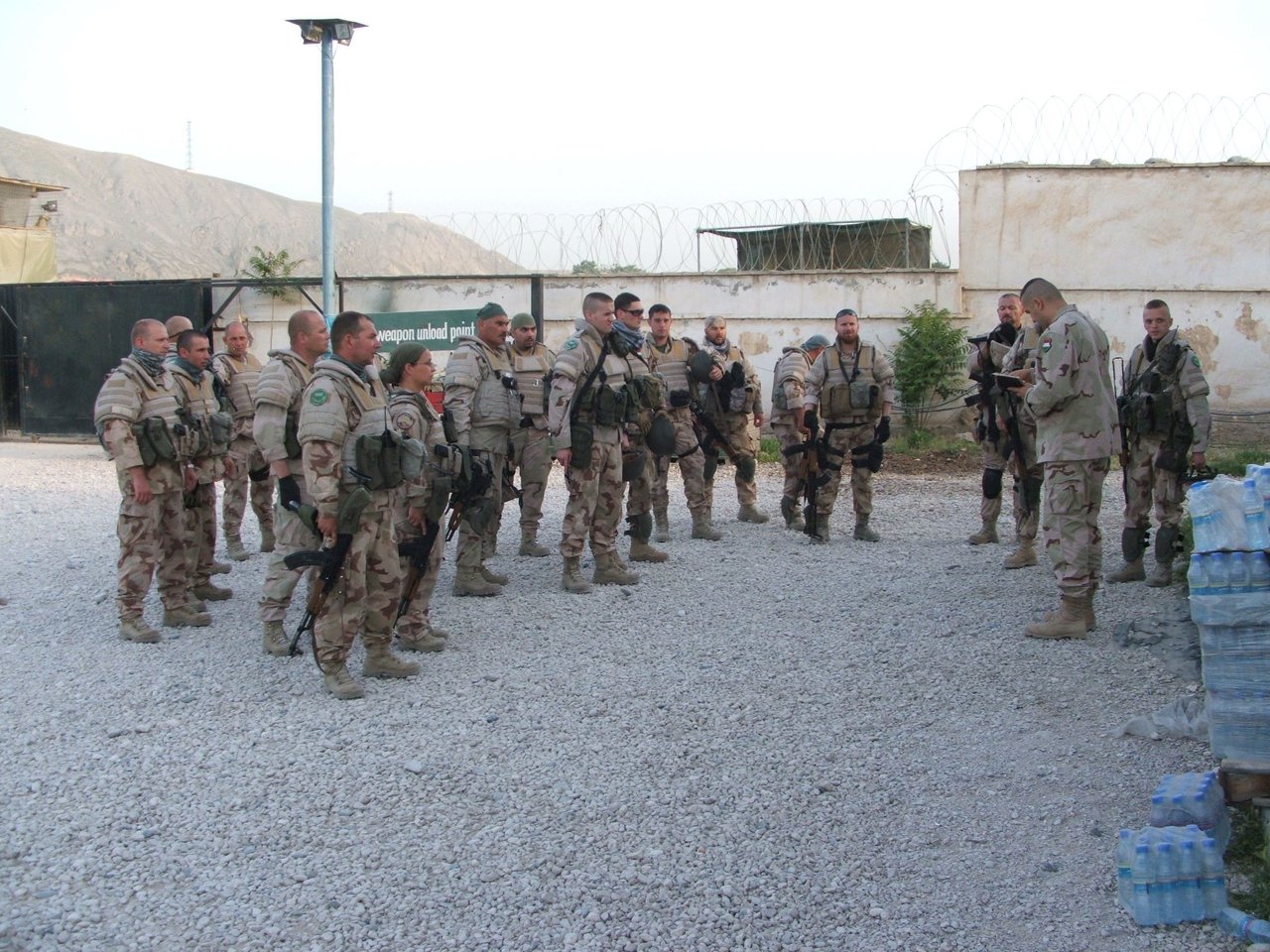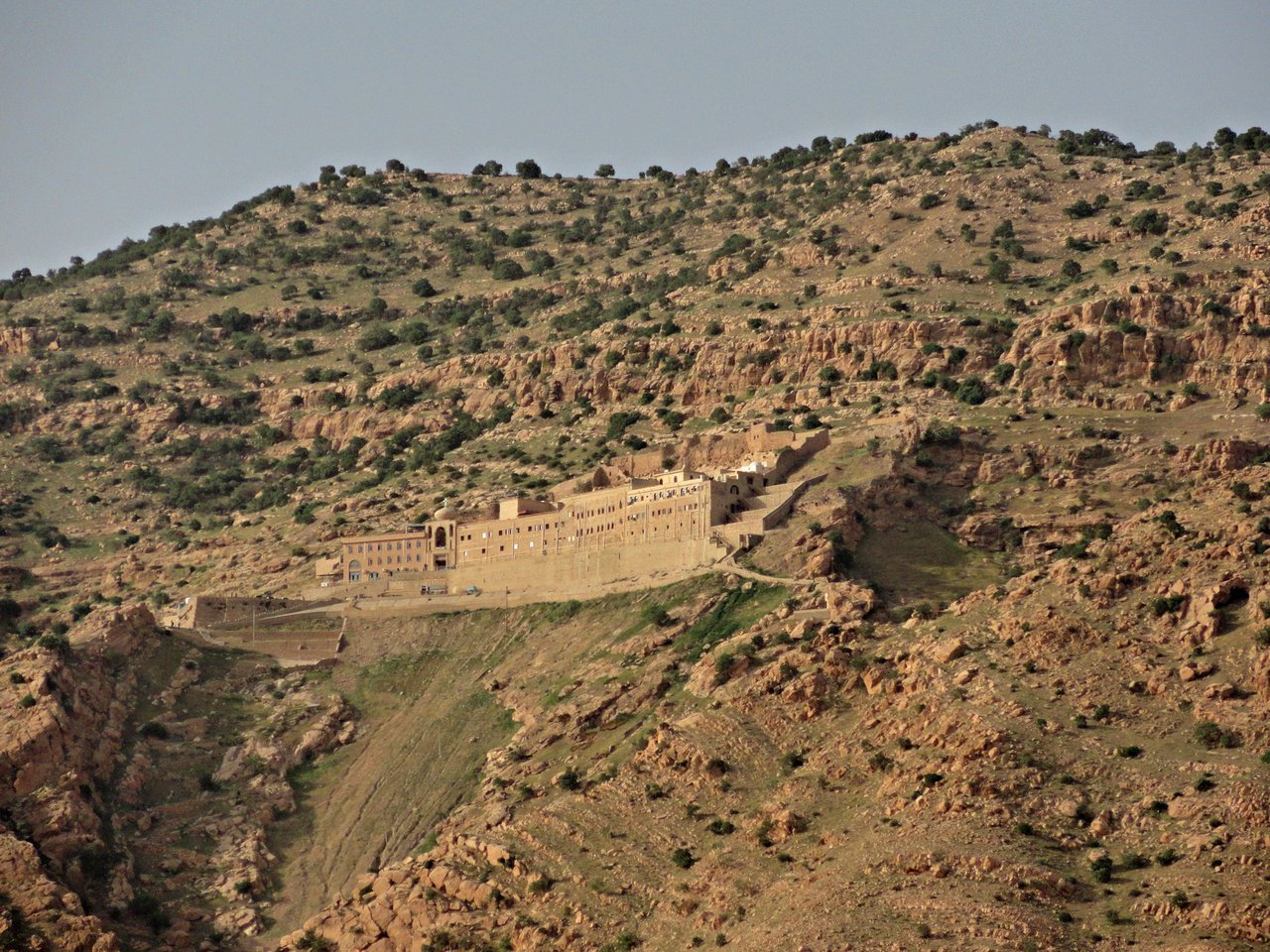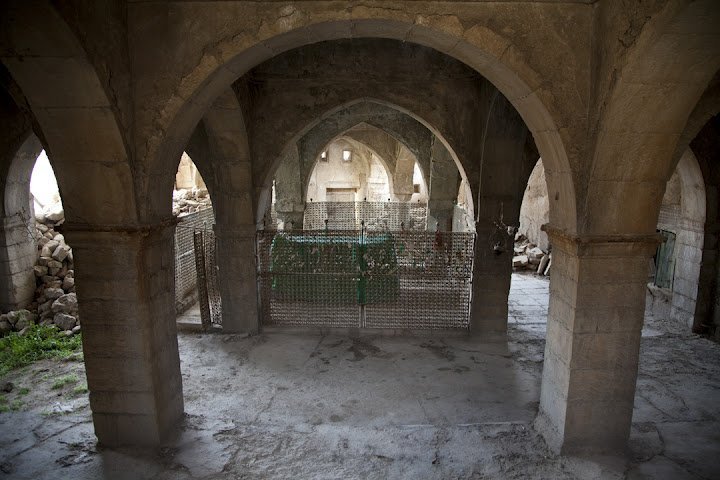One of the oldest Christian communities in the world lives in the northern Kurdistan region of Iraq. Lieutenant Colonel Szilárd Sajtos, a Reformed military chaplain, has visited the Middle East several times as a member of various military missions. In a recently published study on Eastern Christianity, he explained that the survival of the church in the region has been in serious danger due to massive emigration. In an interview, he shared his personal experiences.
“If you ask a Christian from Kurdistan in Iraq about his faith these days, he will speak for hours about his past, about the ancient church, reciting stories of persecution and massacres. If you ask questions about the future, they suddenly become pessimistic. They say they are trapped between the Shia Arabs and the Sunni Kurds. Members of their churches are fleeing their ancestral lands, and their congregations are continuously diminishing. Through our ministry, the outreach, and visits, the Military Chaplaincy might contribute to a more peaceful and hopeful future,” says Rev. Szilárd Sajtos in his study on the history of religion and theology related to Christian missions in the Middle East.

Photo: Szilárd Sajtos
Erbil, the capital of the region, is home to one and a half million people and is considered the oldest city in the world. The Kurdistan region was the centre of ancient Assyria, later part of the Neo-Babylonian and Persian empires, and belonged to the state of Alexander the Great. It was the centre of Syrian Christianity until the Muslim conquest in the 7th century. The majority of the Kurds and Arabs living there are Sunni, a minority Shi'ite, and the Assyrians and Armenians are mostly Christian. According to the belief of local Christians, their church was founded by the apostles, namely Thomas and Peter. One of his trips took Rev. Sajtos to the Mor Mattai Monastery near Mosul in northern Iraq, founded in 363 and considered the oldest such structure in the world. The monastery is maintained by the Syrian Apostolic Orthodox Church and is led by Archbishop Mor Timothy Mosa Alshamany. The church currently has five million members, originally based in present-day Syria, Iraq, and Turkey, but with adherents in many countries around the world due to past waves of flight and emigration.

The Mor Mattai Monastery
Photo: Szilárd Sajtos
The region has a long history, even before Christianity. Jews were deported to this area after the Assyrian Empire conquered the Northern Kingdom. On his latest mission, the military chaplain visited the tomb of the Prophet Nahum, a stone sarcophagus in a recently restored synagogue in a Christian village near Mosul (ancient Nineveh). Nahum is one of the twelve minor prophets of the Bible, which report about the fall of the Assyrian Empire and its capital Nineveh. The prophet's tomb, also located in Al-Qosh near Mosul, was once guarded by local Jews, but today it is the responsibility of a Chaldean Catholic family, who pass the duty from father to son.

The tomb of the Prophet Nahum
Photo: Szilárd Sajtos
Rev. Sajtos also visited the 7th-century Rabban Hormizd Monastery, the oldest seat of the Eastern Church, built on a system of caves in the midst of large mountains. It was here that first the Holy Apostolic Catholic Assyrian Church of the East of the Nestorian movement was founded - the burial place of the Assyrian patriarchs until the 17th century - and later the Chaldean Catholic Church. The monastery's only current resident is a Chaldean Catholic priest, Abuna Yohanna (Father John), but there is a substantial Christian community in Al-Qosh, which is situated below the monastery.
The Reformed pastor met several church leaders during his trip, including the leader of the Syrian Church in Kurdistan, Archbishop-Metropolitan Nicodemos Daoud Matti Sharaf, and the leader of the Mor Mattai Monastery, Timotheus Mousa A. Shamani, who were granted Hungarian citizenship in 2017, thus ensuring their safety and freedom of movement around the world by the Hungarian state. Szilárd Sajtos presented the two Eastern church leaders with Hungarian-language Bibles and a Reformed hymnal including the Geneva Psalms, as well as an English-language book on the churches and congregations of the Reformed Presbytery of the city of Debrecen. Archbishop Timotheus presented the military chaplain his own Syrian Bible, the Pesitta, as a gift which he used during his theological studies as a young man, and a copy of the Beth Gazo hymnal containing ancient Syrian church hymns from the 4th century.
Today, Christians in the Kurdistan region of Iraq live in small ‘islands.’ Even according to optimistic estimates, their number doesn’t exceed four hundred and fifty thousand since they were targeted and expelled by extremist Islamist groups during the wars of the past ten years, which seriously threatens the survival of their church.
The volume “Gospel Among Soldiers” was published on the occasion of the 100th anniversary of the Hungarian Protestant Military Chaplaincy. It includes several essays written by the military chaplain of RCH, Szilárd Sajtos, addressing current issues of Christians in the Middle East.